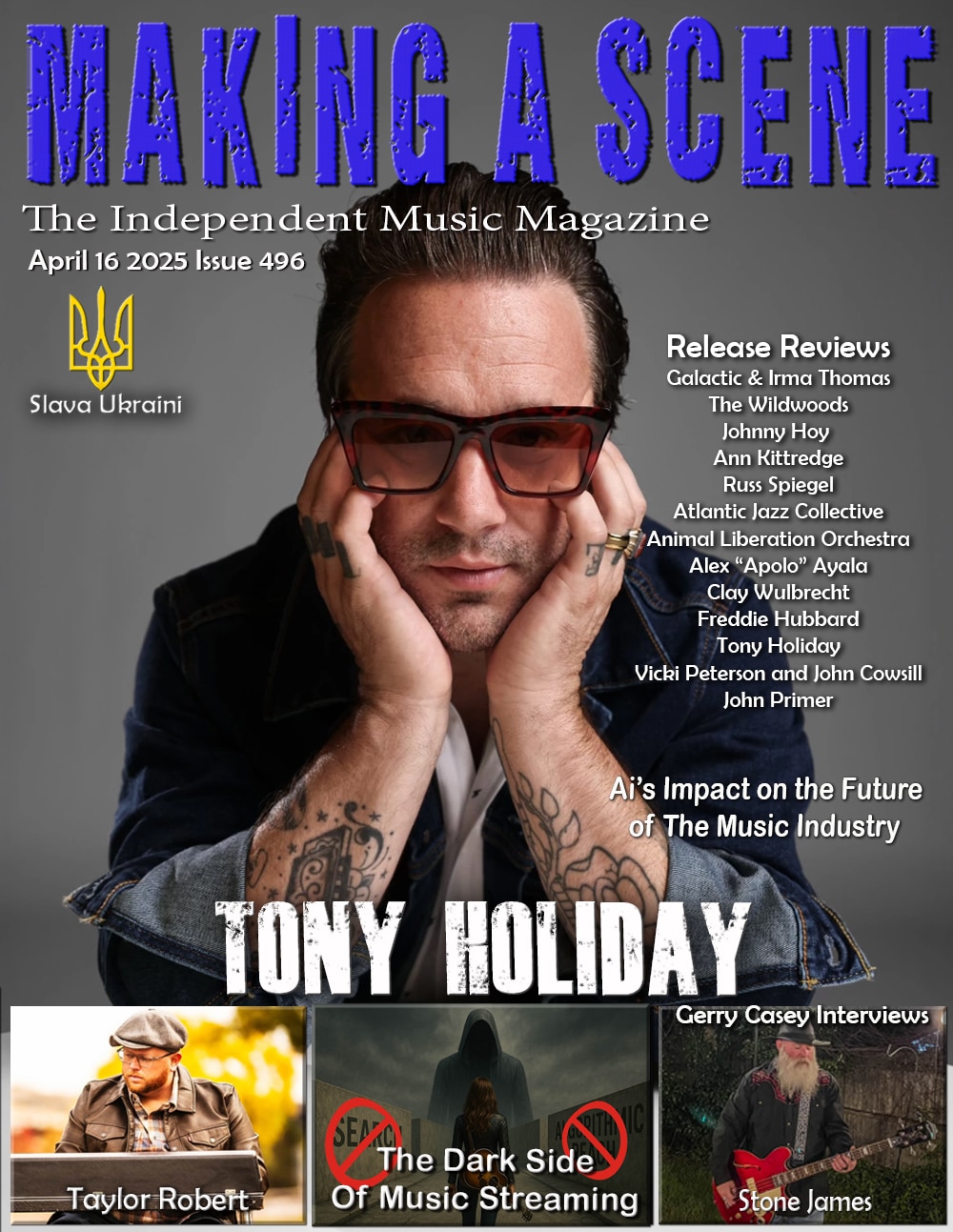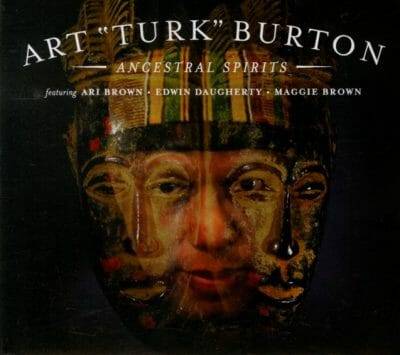Art Turk Burton Ancestral Spirits
Art Turk Burton
Ancestral Spirits
T N’T Music
Percussionist, band leader and author Art Turk Burton leads a powerful ensemble with several AACM (Association for the Advancement of Creative Musicians) members, a six-piece rhythm section and singer Maggie Brown for another adventurous album as a leader. This is his follow-up to Spirits – Then & Now. Burton’s history traces back to Dizzy Gillespie in bebop and Muhal Richard Abrams in the avant-garde and his music bridges these eras, infused with his Afro-Centric style. Mostly, you’ll recognize these titles even though Burton and the band take them into completely new directions. Along with two Burton originals we have versions of Gillespie’s “Night in Tunisia,” Benny Golson’s “Killer Joe,” Gershwin’s “Summertime,” Miles’ “All Blues,” and two from Eddie Harris – “Freedom Jazz Dance” and “Listen Here.”
Joining Burton is a stellar ensemble of Chicago players including Ari Brown (AACM) on tenor and soprano (which he sometimes plays at the same time) as well as piano, Edwin Daugherty (AACM) on alto and soprano, pianist/organist Eddie Beard, bassist Yosef Ben Israel, drummer Dushun Mosley (AACM), Sammie “Cha Cha” Torres on bongo and percussion, Luis “Preito” Rosario on timbales and Maggie Brown (AACM), daughter of the late Oscar brown Jr., delivering spoken word on “Soul Drummers,” and singing on “A Night in Tunisia” and “Freedom Jazz Dance (lyrics from Eddie Jefferson).” Throughout there are killer performances from the soloists and Beard’s rhythmic piano playing especially sparkles. Note that both Burton and Brown appeared on the recently reviewed AACM Great Black Music Ensemble Live at The Currency Exchange Café Volume 1 reviewed on these pages.
They open with “Soul Drummers,” an original by Burton with lyrics by Patrice “Peresina” Burton, the producer, as the percussionists play tribute musically and vocally to many of the great drummers and percussionists who have inspired them. Burton’s other original is the title track which features fiery dialogues between the percussionists and the two saxophonists. Maggie Brown does some terrific scat singing in “A Night in Tunisia” but stays pretty faithful to the late Eddie Jefferson’s vocal approach in “Freedom Jazz Dance.” Benny Golson’s 12 minute-plus “Killer Joe” takes on some Latin flavor underneath the saxophones first in ensemble and then Brown soloing first, followed by Daugherty as well as brilliant piano work from Beard into a percussion break, before it returning to the theme. “Summertime” and “All Blues” will be familiar in the ensemble parts but do stretch into free jazz and some unpredictable territory in the soloing. “Freedom Jazz Dance” has Beard on organ and presumably, Ari Brown on piano. “Listen Here,” the second longest track, has a pulsating groove and is another feature for the saxophonists and Beard. The percussion and beats percolate through every piece.
Burton calls this his testament to his deep love of African and Latin rhythms, saying, “All of the tunes were features for some of the most important drummers of all time. Drummers like Tito Puente, Ray Barretto, Willie Bobo, Candido Camero, Mongo Santamaria and others, expect for the into and title tune.”
Burton was originally self-taught on congas and bongos and in addition to jazz has worked in pop, R&B, and Latin sessions. A member of the AACM since 1973, burton has performed, aside from Gillespie and Abrams, with Lester Bowie, Henry Threadgill, Randy Weston, Sonny Stitt, Lou Donaldson, Anthony Braxton, Roscoe Mitchell, Joseph Jarman and Elvin Jones. He has recorded with Nicole Mitchell, Vandy Harris, Ari Brown, and, as mentioned, with the AACM Great Black Music Ensemble. He has led the Congo Square Artistic Ensemble and Conjunto Bembe Percussion Ensemble.
Burton is also a scholar, educator and author. He has written three books about the little-known role of African-Americans in the Old West: Black Gun, Silver Star (The Life and Legend of Frontier Marshall Bass Reeves), Black, Buckskin, and Blue (African-American Scouts and Soldiers on the Western Front), and Black, Red and Deadly (Black and Indian Gunfighters of the Indian Territories 1870-1901)
The ancestral spirit of the drum links modern day African-American cultures to those of the past. Drums! Drums! And even more drums! This is powerful music.
- Jim Hynes
Discover more from Making A Scene!
Subscribe to get the latest posts sent to your email.













































